As a BetterHelp affiliate, we receive compensation from BetterHelp if you purchase products or services through the links provided
To help you navigate acute anxiety, we’ve gathered eight effective coping mechanisms from professionals, including a registered nurse and a CFO. From harnessing calm with deep-breathing exercises to resetting stress levels in nature, discover the strategies these experts use to manage anxiety.
- Harness Calm with Deep-Breathing Exercises
- Ground Yourself with the Anchor Method
- Find Center with Mindfulness Meditation
- Ease Anxiety with the 5-4-3-2-1 Grounding Technique
- Manage Anxiety with Daily Time-Outs
- Articulate Fears through Writing
- Dissect Anxiety with Data-Driven Mindfulness
- Reset Stress Levels in Nature
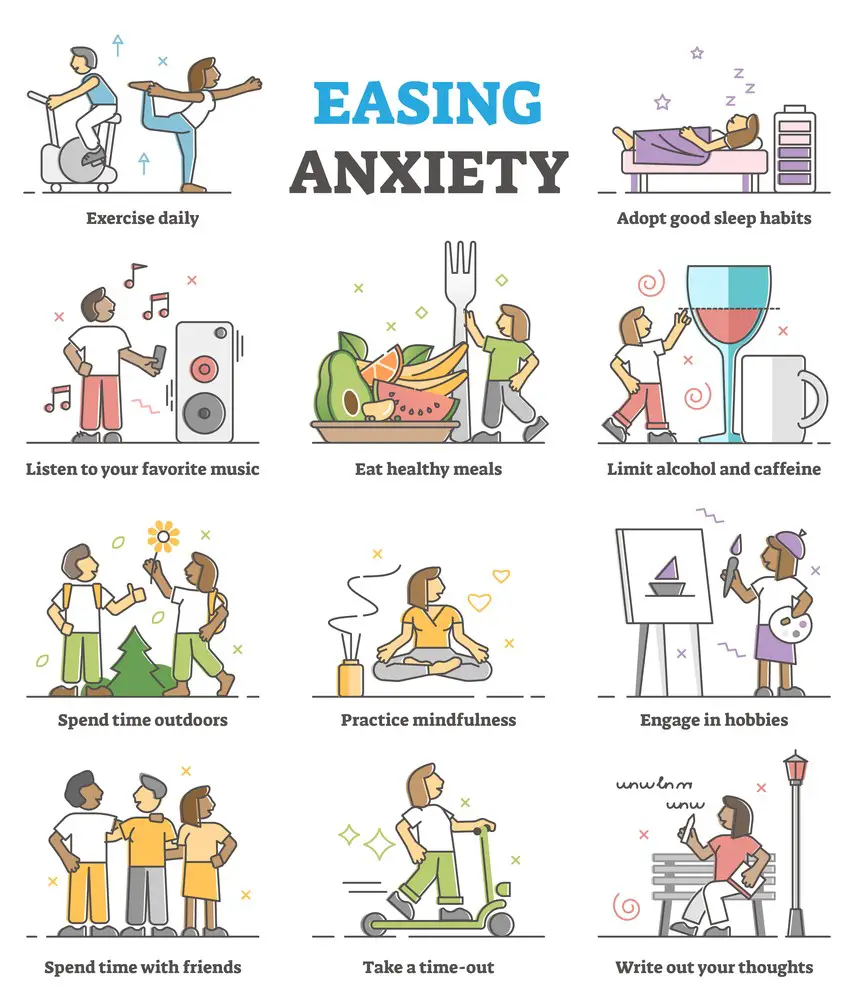
1. Harness Calm with Deep-Breathing Exercises
Deep breathing exercises are an immensely helpful coping mechanism for acute anxiety. When anxiety strikes, I take a moment to pause and focus on my breath. I practice slow, deep breaths, inhaling for a count of four, holding for four, and exhaling for four.
This technique not only calms the physical symptoms of anxiety, such as a racing heart and shallow breathing, but it also helps me regain control over my thoughts and emotions. It’s a simple yet powerful tool that can be used discreetly in any situation, making it an invaluable resource for managing acute anxiety and promoting a sense of calm and clarity.
Rhianna Jones, Registered Nurse, CanXida
2. Ground Yourself with the Anchor Method
One effective coping mechanism I often recommend is a mindfulness technique I call “The Anchor Method.” It involves grounding yourself in the present moment by focusing on a physical sensation, like the feel of your feet on the ground or your hand on your heart.
This particular focus diverts your mind from obsessive or intrusive thoughts, creating a mental “anchor” and providing immediate relief and clarity to feelings of anxiety.
Bayu Prihandito, Certified Psychology Expert, Life Coach, Founder, Life Architekture
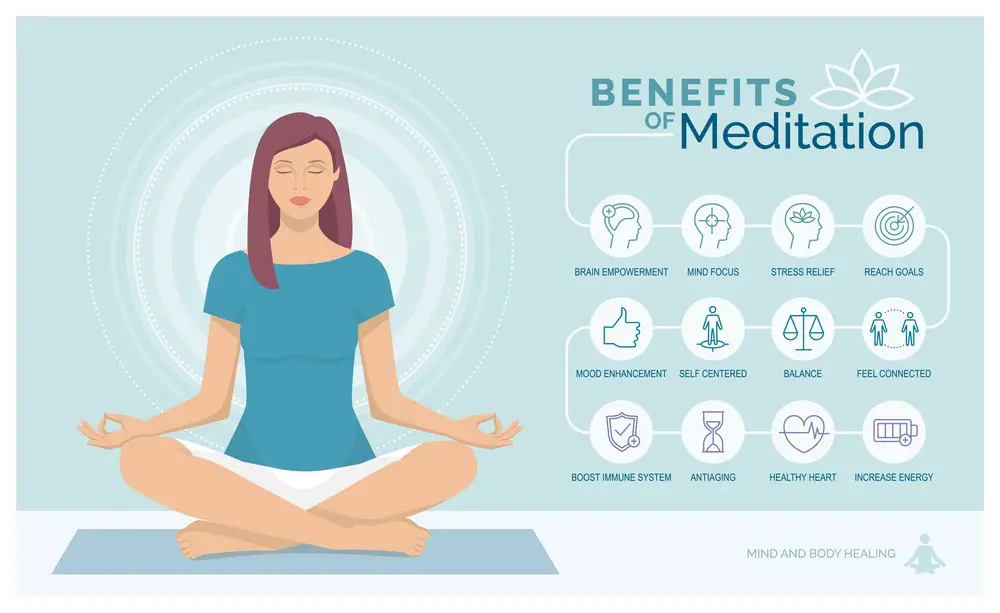
3. Find Center with Mindfulness Meditation.
Dealing with acute anxiety, I’ve found mindfulness meditation an incredibly effective coping mechanism. When anxiety hits, taking a few minutes to focus on my breath and bring attention to the present moment helps to ground and center me.
Mindfulness allows me to observe my thoughts without getting entangled, creating a space for clarity and calmness. I often use guided meditation apps or find a quiet space to practice mindful breathing.
This practice doesn’t eradicate anxiety but provides a valuable tool to manage and navigate those challenging moments, fostering a sense of control and resilience. Incorporating mindfulness into my daily routine has been transformative, offering a reliable anchor in the face of acute anxiety.
Sai Blackbyrn, CEO, Coach Foundation
4. Ease Anxiety with the 5-4-3-2-1 Grounding Technique
When faced with acute anxiety, I’ve found the “Grounding Technique,” precisely the “5-4-3-2-1” method, beneficial. When overwhelmed, this practice helps anchor you to the present moment. Here’s how it works:
- Identify five things you can see around you.
- Touch four objects and mentally note their texture.
- Listen for three distinct sounds.
- Recognize two smells (or recall your two favorites).
- Taste something or recall one taste.
Redirecting focus to your immediate surroundings interrupts the anxiety loop and brings a heightened awareness to the now. This technique serves as a mental “reset,” easing overwhelming sensations and fostering calm.
Richard Frankel, Disability Lawyer, Bross & Frankel, PA
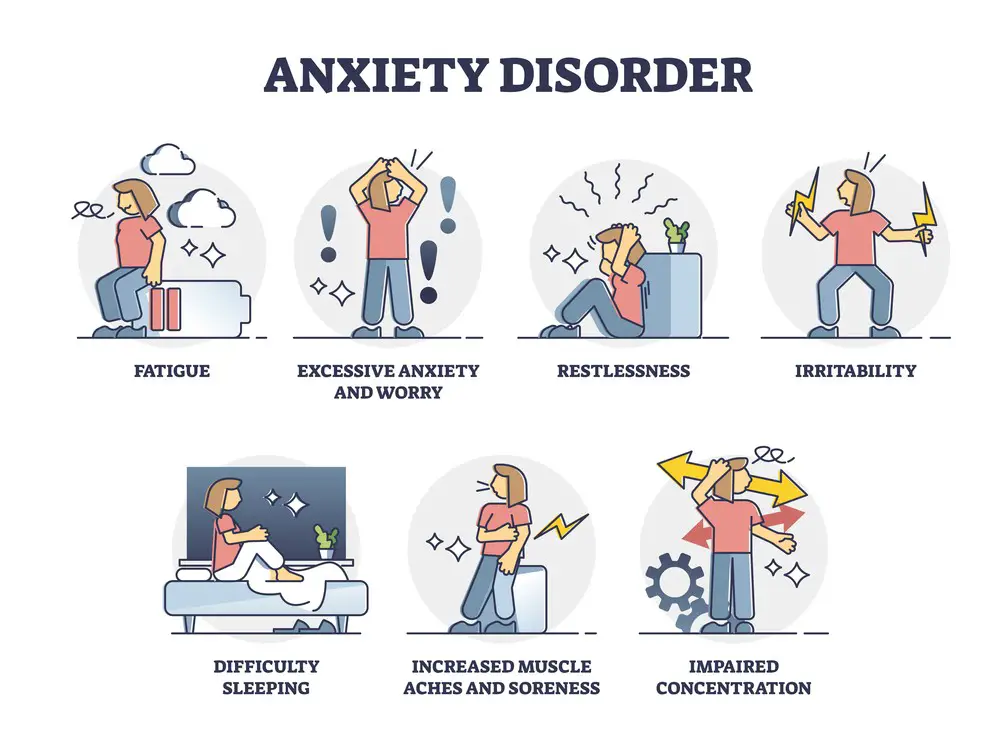
5. Manage Anxiety with Daily Time-Outs
In my experience, dealing with acute anxiety sometimes depends on the person and their independent needs. However, something that can help to mitigate acute anxiety symptoms can be to take a time-out during the day, even if you feel you aren’t experiencing any anxiety.
Managing stress and anxiety can be helped by staying on top of it, which means trying to minimize the feelings or prevent it from happening during the day.
Force yourself into a time-out where you sit and relax without stimulation from things like your phone or other people. You can use this time to practice breathing techniques, meditate, read a book, or even take a quick nap. Allowing yourself to be calm can help when something like an anxiety attack is coming on. You will be better equipped to deal with it as you are more calm and alert.
Dr. Roshan Vara, Hair Transplant Surgeon and Co-Founder, The Treatment Rooms London

6. Articulate Fears through Writing
When confronting acute anxiety, a silent yet empowering tool is as simple as pen and paper. Meet your anxiety with curiosity and invite it onto the paper.
Writing offers a safe, judgment-free space to articulate your fears and anxieties. Reflect on your emotional landscape, the triggers, and the alleviators. The mere act of writing your anxiety has an unexpected cathartic release, which minimizes the magnitude of the distress.
Dilruba Erkan, Consultant, Morse Code Translator
 7. Dissect Anxiety with Data-Driven Mindfulness
7. Dissect Anxiety with Data-Driven Mindfulness
In my journey as a founder, the pressures and demands are intense, particularly when leading high-performing teams. Anxiety is, unfortunately, a companion to many in leadership positions. One mechanism I’ve found invaluable is likening anxiety to an alarm system. It’s a signal, not a conclusion. When my “alarm” rings, I dive into data-driven mindfulness.
I analyze my thoughts as I would a company report. What’s the root cause?
Is this anxiety based on facts or perceived threats?
Meditation and this analytical approach allow me to dissect my concerns objectively. Think of it like troubleshooting software—once you identify the bug, you’re better equipped to address it. This method provides me with clarity focus, often revealing that the magnitude of my anxiety is disproportionate to the actual problem.
Ankit Prakash, Founder, Sprout24
8. Reset Stress Levels in Nature
Never knock nature. Making sure to take a little time outside and off electronics goes a long way in resetting and managing my stress levels. Between my excessive work stress and my wife’s acute anxiety, fitting in an adequate amount of outdoor adventure makes all the difference.
Christopher Olson, CFO, Surfside Services
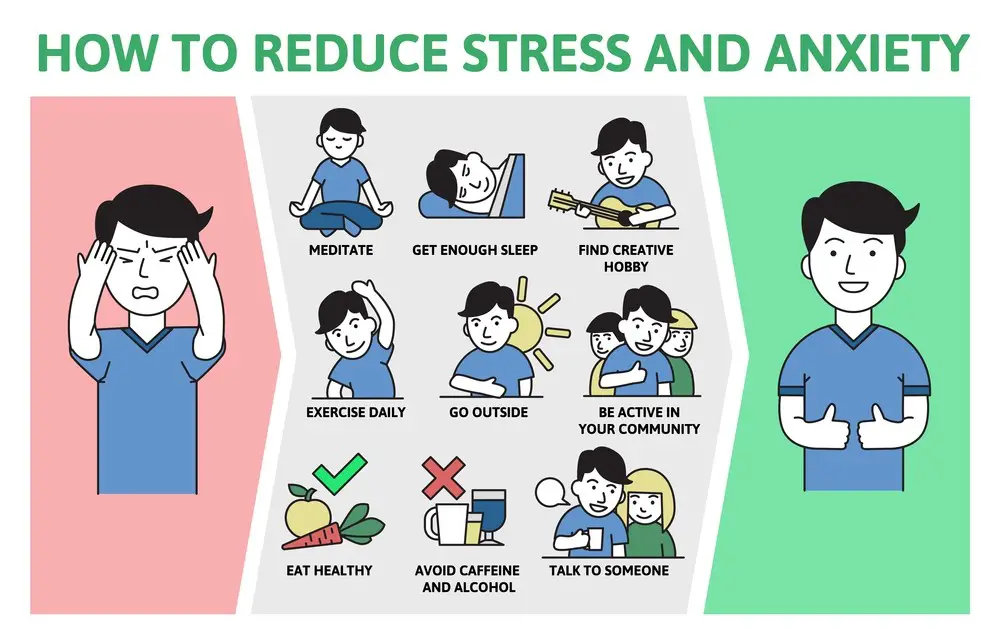
Additional Tips and Advice for Managing Acute Anxiety
We’ve covered a lot of ground, offering a variety of professional insights on coping with acute anxiety. Now, let’s end with some tips and advice to help you put these strategies into practice:
Personalize Your Approach
- Customize Coping: Remember, everyone’s experience is different. Feel free to mix and match techniques to find what suits you best.
Daily Maintenance
- Routine Matters: Try incorporating at least one coping mechanism into your daily routine, even on good days. It’s like building an emotional muscle!
Assess and Adapt
- Be Your Own Scientist: Keep track of which methods work for you and which don’t. Adjust your strategies as needed.
Emergency Kit
- Prepare a Go-To Toolbox: Save helpful meditations, write down steps for your favorite techniques, or pack a small bag with comforting items. Be prepared for when anxiety strikes.
Revisit and Revise
- Check in Regularly: As you change, your coping mechanisms might need to change, too. Every once in a while, take stock and update your techniques.
Seek Professional Help When Needed
- Consult the Experts: If your anxiety feels unmanageable, don’t hesitate to seek professional help. Sometimes, coping mechanisms are a stepping stone to more comprehensive treatment.
Remember, managing anxiety is a journey, not a destination. Be patient with yourself as you explore these coping mechanisms, and don’t hesitate to seek additional support when needed. Cheers to your mental well-being!

Signs You Might Need Therapy
Emotional Overload
- Constant Anguish: If you find that you’re often sad, angry, or overwhelmed, and these feelings are affecting your daily life, it’s a sign to consider therapy.
Unmanageable Anxiety
- Chronic Stress: When coping mechanisms alone can’t mitigate your anxiety, or if it’s affecting your physical health, therapy is often beneficial.
Declining Relationships
- Interpersonal Issues: Strained relationships with family, friends, or colleagues can indicate deeper emotional or psychological issues that therapy can help address.
Behavioral Red Flags
- Negative Habits: If you’re engaging in self-destructive behavior like substance abuse, therapy can offer a supportive environment for change.

Setting Goals for Therapy
Identify Specific Issues
- Pinpoint Problems: Before you start, identify what you’d like to address in therapy. It could be anything from generalized anxiety to relationship concerns.
Realistic Expectations
- Baby Steps: Set achievable short-term goals alongside long-term objectives. This makes the therapeutic journey manageable and less overwhelming.
Open Dialogue
- Communication is Key: Keep an open line of communication with your therapist about your goals. Their guidance can be invaluable in helping you refine them.

Monitoring Progress in Therapy
Regular Check-ins
- Take Stock: Periodically review your goals and your progress towards achieving them. Discuss this openly with your therapist to adjust your treatment plan as needed.
Journaling
- Reflect on Your Journey: Keeping a therapy journal can provide insights into your emotional patterns and track your progress.
Measures of Success
- Define Milestones: Establish clear indicators for success—decreasing anxiety attacks, better managing your emotions, or improving relationships.
Adjust and Adapt
- Be Flexible: If you’re not making the progress you’d hoped for, it’s okay to reassess. Your therapy goals aren’t set in stone; they’re more like guidelines that can and should be adapted as you grow.
You can make the most of your therapeutic journey by recognizing the need for therapy, setting clear goals, and tracking your progress.
Jacob Maslow
After surviving the traumatizing events of 9/11, I took it upon myself to heal through helping others. I’m the primary caregiver of my children and understand from first-hand experience the lonely paths you have to walk as a partner and parent when leaving an unhealthy relationship.
We’re all echoing in a dark space that doesn’t have to be this empty, and that’s been my mission since finding solace and recovery in therapy: To help comfort others who are still in shock and at the prime of their struggle.
I came across BetterHelp after searching for this type of community. I wanted to belong to a body of proactive therapists and supportive therapy veterans that allowed me to see other sides of the story.
It was unconventional, and that’s what attracted me most. During my most challenging times, when my ex-wife completely cut me off from my children, I found comfort and clarity through BetterHelp.
Instead of being chained to a strict therapist recommendation, I was in charge of who I felt understood my struggle most. That allowed me to find my true peace, as I was reunited with those who read behind my words and had first-hand experience with my trauma.
Recovery is a choice; with BetterHelp, that choice will be a few clicks away. You can join their couples-oriented platform, Regain.us, for those stuck with family estrangement and toxic relationship patterns.
- How to Transform a Home’s Patio Space into a Relaxing Space - March 23, 2025
- 5 Strategies to Use a Cell Phone to Help Manage Your Stress - March 23, 2025
- 4 Ways to Use Measurements to Create a Relaxing Sleep Space - March 23, 2025
This site contains affiliate links to products. We will receive a commission for purchases made through these links.


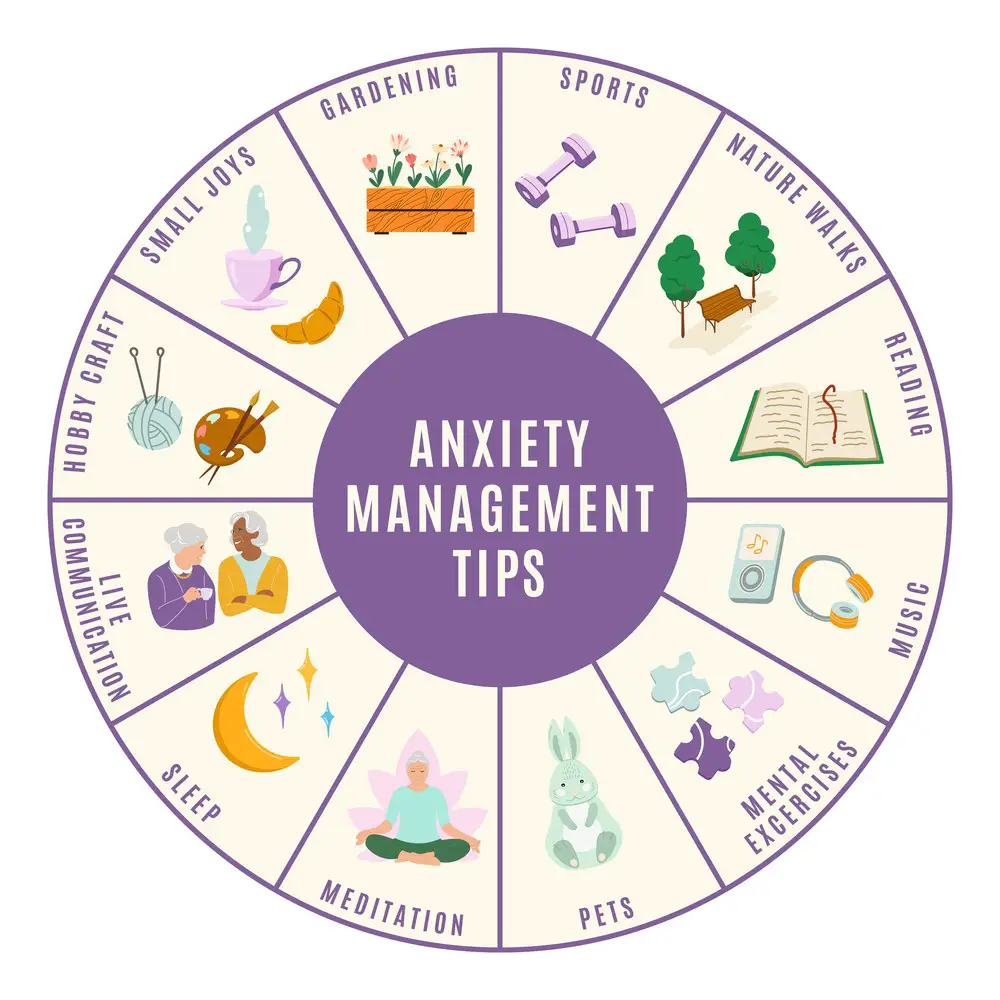 7. Dissect Anxiety with Data-Driven Mindfulness
7. Dissect Anxiety with Data-Driven Mindfulness
